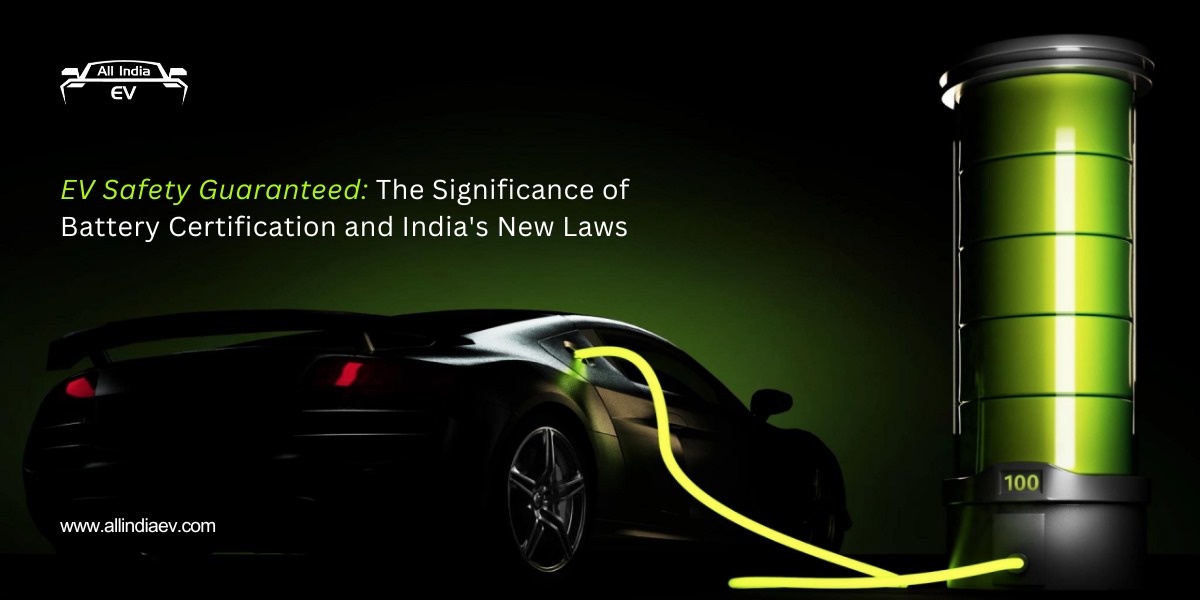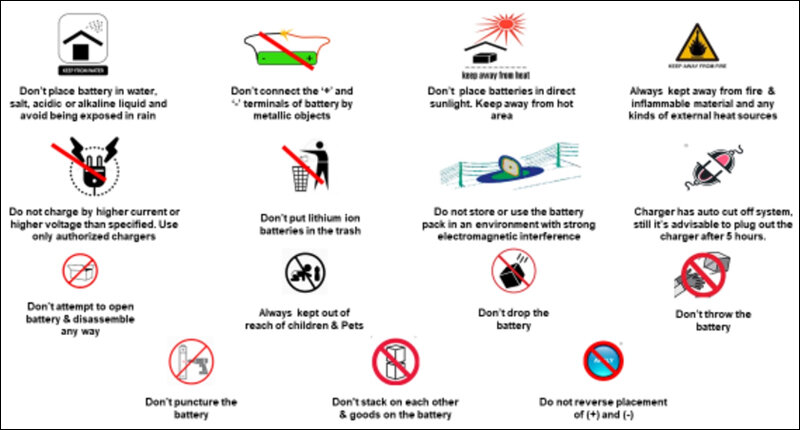
The Rise of Electric Vehicles: Navigating Through the Path of Safety and Certification
The journey towards embracing electric vehicles (EVs) marks a critical shift in the realm of transportation, steering us towards a future that is both sustainable and eco-friendly. This transition away from conventional ICE vehicles is a leap towards reducing our carbon footprint. Yet, the adoption of electric vehicles brings to light new considerations, especially concerning safety. Lets see what Electric Vehicles Safety and Certifications are needed by the Industry
Central to the safety discourse around electric vehicles is the matter of battery integrity. The battery, the powerhouse behind the vehicle, demands rigorous safety checks to ensure the well-being of passengers and to facilitate the broader acceptance of EVs. This brings us to the pivotal practice of battery certification, a process that has emerged as a priority for both manufacturers and regulatory bodies.
Understand the Electric Vehicles Safety and Certifications
Understanding Battery Certification
Battery certification involves a comprehensive evaluation led by independent bodies to assess a battery’s safety and efficiency. This evaluation covers a spectrum of tests, such as electrical, mechanical, and environmental assessments. The goal is to confirm that the battery stands up to established safety and performance benchmarks, making it fit for various uses, including in electric vehicles, consumer gadgets, and energy storage solutions.
The Importance of Battery Certification
Certification of batteries is a critical element in ensuring the safety of electric vehicles (EVs). The substantial power and size of EV batteries bring about considerable risks if they malfunction. Through certification, these batteries are confirmed to meet strict safety standards, which cover their ability to withstand extreme temperatures, vibrations, and their capability to prevent short circuits. This process also involves rigorous quality assurance practices, which reduce the chances of battery failure and increase their reliability.
Moreover, the process of certifying batteries builds consumer confidence in the safety and reliability of electric vehicles. When consumers are aware that the batteries powering their vehicles have been subjected to exhaustive testing and conform to stringent safety specifications, it offers them peace of mind. This assurance plays a pivotal role in strengthening their trust in electric vehicles as a secure and dependable choice for transportation.
Global and National Certification Authorities
➡️ Various global organizations provide battery certification services, ensuring that batteries meet strict safety criteria. Notable certification entities include UL (Underwriters Laboratories), TUV (Technischer Überwachungsverein), and Intertek.
➡️ In India, electric vehicle (EV) battery manufacturers are required to secure ARAI certification as per the AIS 156 amendment. The Automotive Research Association of India (ARAI) specializes in assessing and certifying product safety and performance, validating that EV batteries conform to the necessary standards for the Indian market.
➡️ Beyond private entities, government agencies and regulatory bodies are key players in battery certification. In India, the Ministry of Road Transport and Highways (MoRTH) actively addresses battery safety in EVs.
➡️ Starting October 1, 2022, MoRTH implemented new safety norms for batteries under regulations AIS-038 Rev 2/AIS-156. These norms are in line with European Union standards and include thorough environmental and thermal propagation testing, ensuring that EV batteries meet rigorous safety requirements.
Such measures by both private and government sectors aim to ensure the safety, reliability, and sustainable integration of electric vehicles in India by adhering to high safety standards.
Comprehensive Battery Safety Measures in India

The rollout of new battery safety standards is a proactive measure following incidents of battery-related fires in electric two-wheelers from leading manufacturers like Okinawa, Ola Electric, and Pure EV in April 2022. The industry has welcomed these stricter norms, anticipating they will greatly enhance the safety and reliability of electric vehicles (EVs) in India, thereby encouraging more consumers to transition to EVs.
These updated norms set stringent requirements for the construction of battery packs, onboard charging systems, and measures to prevent thermal propagation, which could lead to fires from internal cell faults and other hazards. Key aspects of the regulations include ensuring traceability of battery packs, adding an extra safety fuse, safeguarding against issues from regenerative braking, maintaining adequate space between cells, and implementing a sophisticated microprocessor-controlled Battery Management System (BMS) with comprehensive protections. The implementation of these rules is divided into two stages, starting with Phase 1 on December 1, 2022, and moving to Phase 2 on March 31, 2023.
Mandatory battery safety tests will vary by vehicle category. For the L category, which includes two and three-wheelers, batteries must pass a series of tests such as vibration, thermal shock, cycle life, mechanical integrity for removable REESS (Rechargeable Energy Storage Systems), fire resistance, external short circuit, overcharge, over-discharge, over-temperature protections, and hydrogen emission assessments.
For vehicles in the M&N categories, including four-wheelers and larger vehicles, the testing criteria encompass all those applicable to the L category, plus additional checks for thermal propagation and hydrogen emissions. These specific tests evaluate the potential for heat-related incidents to spread within a battery pack and measure the hydrogen gas emitted during such incidents, ensuring comprehensive safety across various EV segments.
Moving Forward
As the popularity of electric vehicles grows, the importance of battery certification in ensuring the safety of these vehicles cannot be overstated. India’s proactive measures in updating battery safety standards and enforcing comprehensive testing protocols are significant steps towards enhancing EV safety. By mitigating risks and reinforcing consumer confidence, these efforts are crucial in paving the way for a more sustainable and safe electric mobility future in India.
The narrative underscores the significance of stringent battery certification practices and the proactive stance of Indian regulatory frameworks in enhancing electric vehicle safety and reliability. Through meticulous testing and certification, the industry aims to address safety concerns, promote consumer trust, and accelerate the adoption of electric vehicles, heralding a greener, more sustainable future in transportation.
